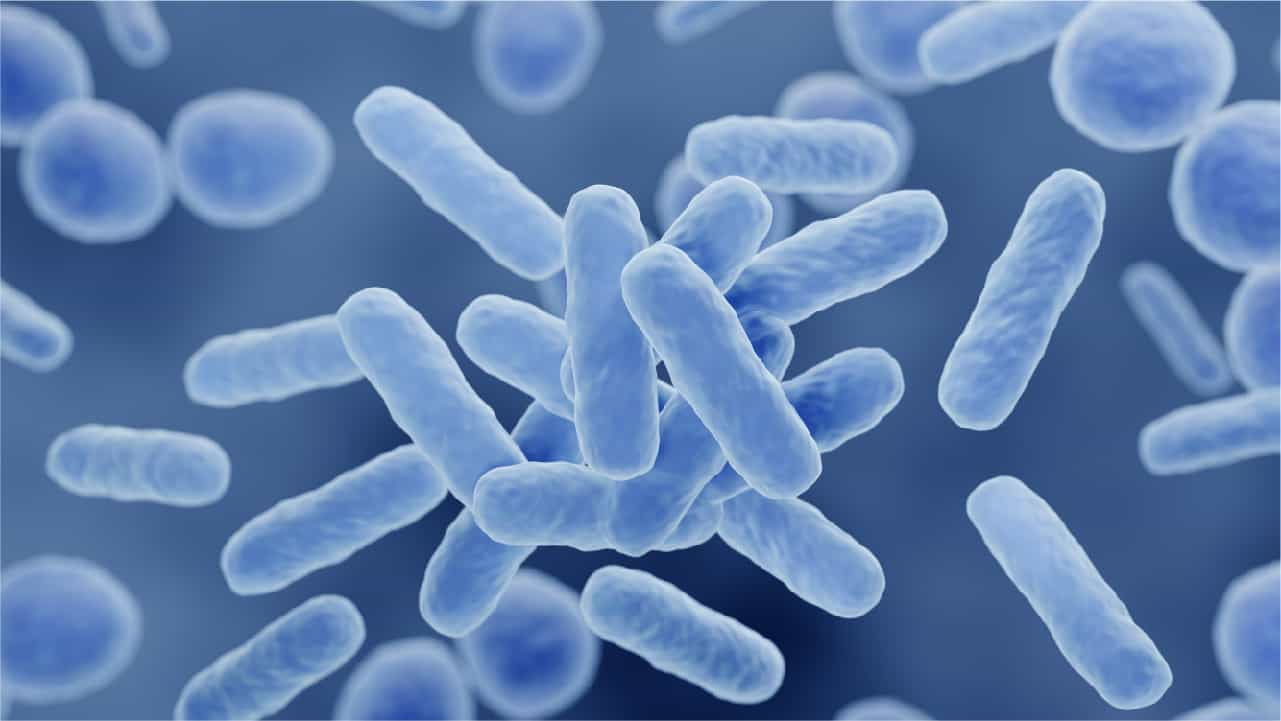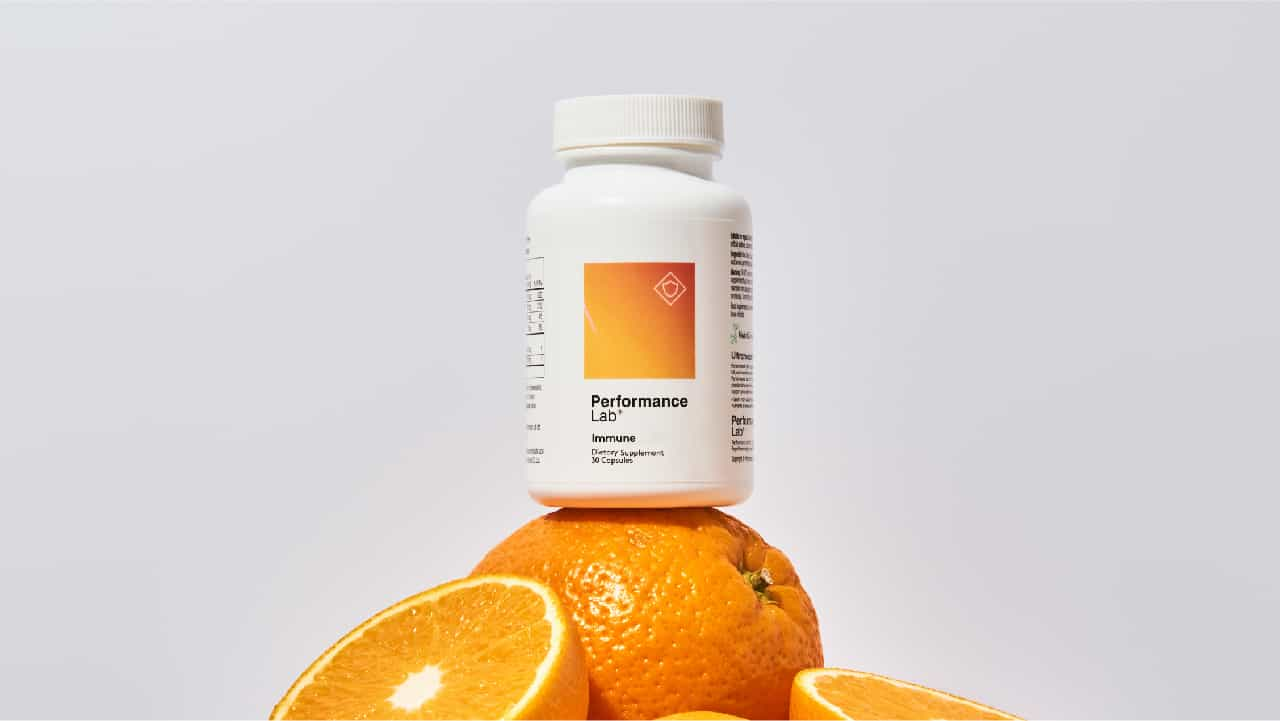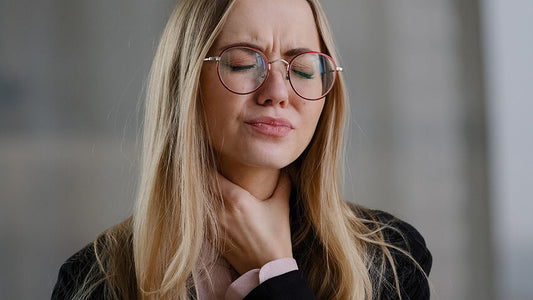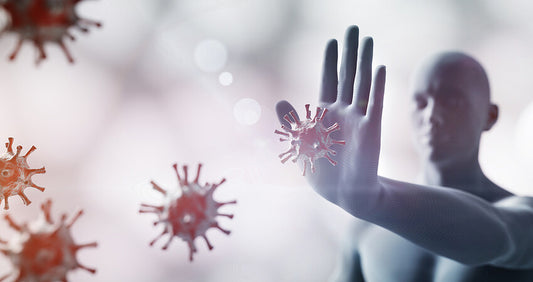"What the Holiday wants, the Holiday gets."
It's a mantra I swear by.
And yes, it's also a way of justifying slightly unnecessary spends. But let's face it, we've been waiting for this moment. We've worked hard for it. And more to the point, we've earned it.
Last year the holiday wanted new sunglasses and a book to read on the beach.
Fair enough.
What I don't remember the holiday asking for, was a blocked nose, a throbbing head, and full-on body aches.
But two days in, that's precisely what happened.
And judging by the number of times I've heard exactly the same thing from others. It would seem this isn't a unique experience. Getting ill on holiday is A Thing.
So why is that?
Why do we get ill, the moment we stop?
If you've ever booked time off only to spend most of it feeling rough. You may be experiencing a phenomenon known as the 'Let Down Effect'.
In this article we'll look at the science behind why we get ill on vacation.
What is The Let Down Effect?

I'd bet that in the lead up to vacation you've been flat out. You've gone above and beyond at work, and at home.
The packing, prepping, and last-minute panics are one thing. But factor in a full-time job, project deadlines, and a tornado of to-do lists. Suddenly, our body is in a heightened state of alertness.
Which means increased levels of the stress hormones cortisol and adrenaline. These prepare our body to face immediate challenges—a response often referred to as the "fight or flight" mode. (1)
This is all good when it comes to getting us out of danger. But as soon as we stop, the body's physiological system has to shift abruptly from an emergency response state to a state of recovery.
It's this quick shift that can make us more susceptible to illness.
Why is Our Immune System Better When We're Stressed?

It seems counterintuitive, but during periods of high stress, our immune system appears to kick into a higher gear.
At this point, our bodies rely heavily on cortisol and adrenalin. This duo forms an elite emergency response team, ready to handle any crisis. They have the authority to divert resources, suppress unnecessary functions, and mobilize energy—whatever is needed to get us through this emergency.
Cortisol and Adrenaline's Role in Immune Function
These hormones do more than just trigger our "stressed out" response; they are critical in preparing our bodies for action. By activating the fight-or-flight response and directing resources toward handling immediate threats, they can effectively mask symptoms and keep us functioning. Ensuring we have the energy to 'escape' or 'survive' under pressure.
Here's how they can help, but may also hinder:
1. Increase glucose in the blood.
Pro: Provides a burst of energy needed for a quick escape.
Con: May mask symptoms of fatigue that are commonly associated with illness.
2. Reduce Sensitivity to Pain.
Pro: Cortisol acts to suppress the inflammatory response and can reduce the perception of pain, allowing us to 'battle' on.
Con: Pain and inflammation are common symptoms of illnesses. By suppressing these, cortisol can make us unaware of underlying health issues.
3. Suppress Fever.
Pro: A fever is our body increasing temperature to fight off pathogens.
Con: Cortisol can moderate the body's temperature response, potentially preventing a fever from manifesting even when an infection is present. This may lead us to believe we're not sick when we actually are.
4. Decrease Immune Surveillance.
Pro: Both cortisol and adrenaline can reduce the activity of certain immune cells, such as lymphocytes.
Con: Early signs of infection, which are typically spotted by these cells, might not be detected. As a result, the usual symptoms of an infection (such as swelling and redness) might not be as pronounced or noticeable.
5. Cause a Distraction
Pro: Adrenaline boosts alertness and can shift our focus and priorities away from internal body states towards external threats.
Con: We're distracted from recognizing symptoms of illness, as our attention is consumed by the tasks or stressors at hand, i.e. completing that never-ending to-do list.
The effects of these raised hormones are beneficial in the short term. They keep us going, which is great, because at this point, we're too busy to be ill.
But what goes up, must come down.
Once we stop, and our body re-establishes homeostasis, this recovery phase can make us temporarily more susceptible to illness.
What Happens to Our Immune System When We Stop?

Imagine running full speed on a treadmill, and then accidentally pulling the emergency stop cord. The sudden halt will throw you off balance, possibly flooring you.
When we finally step off that plane, and take up residency round the pool, we've effectively pulled the emergency stop cord.
The same stress hormones that were helping us cope—cortisol and adrenaline—suddenly plummet. This hormonal shift signals our body to move from a state of high alert to one of recovery and normalization. But our immune system struggles to adapt as quickly:
- Hormonal Decline: As soon as we switch to relaxation mode, cortisol and adrenaline levels drop. The hormone levels that previously boosted our energy and alertness, have suddenly vanished. Meaning we might start feel unusually tired and sluggish.
- Rebound Effect: The rapid drop in cortisol levels can lead to a rebound effect where the immune system, in an attempt to 'catch-up' might overreact to pathogens it previously underreacted to. This can trigger sudden allergic reactions or increase sensitivity to allergens.
- Temporary Immune Depression: As cortisol levels drop, the immune system temporarily weakens. Previously suppressed immune functions like inflammation and pathogen defense are reduced, making you more likely to catch colds and other infections.
- Inflammation Surge: Once cortisol's suppressive effect ends, there may be a temporary increase in inflammation, causing the body to overreact to minor threats. This can intensify symptoms such as sore throats, fevers, and swelling.
- Exposure to New Pathogens: Additionally, exposure to new environments and their unique pathogens can catch our recovering immune system off-guard, making it harder to respond quickly.
The transition from high stress to relaxation can leave our immune system vulnerable and struggling to adjust to the sudden change.
So how can we bolster our immune system to better handle this downtime?
Studies have shown that postbiotics play a crucial role in enhancing and modulating our immune response. (2) But what exactly are postbiotics, and how do they support our immune system?
What Are Postbiotics?

You've likely heard a lot about probiotics and their benefits for gut health, but what about postbiotics?
Simply put, postbiotics are non-living byproducts produced during the fermentation process by probiotics. These substances, including enzymes, peptides, and acids, help regulate the immune system, reduce inflammation, and enhance overall health—without the need for the microbes themselves to be alive.
How Postbiotics Support Health
Unlike some live probiotics, postbiotics don't face the risk of being destroyed by stomach acid. They're heat-stable, don't require refrigeration, and provide consistent benefits. Making them an ideal choice for maintaining immune health, especially in situations where our bodies are susceptible, like on vacation.
Taking a daily postbiotic can not only play a role in safeguarding your time off work, it can also make you more productive when you're at work.
Yep, that's right. A study on healthy office workers taking the postbiotic LC-Plasma showed participants had: (3)
- Decreased sick days and increased productivity.
- Increased energy and improved mood.
- Reduced common cold symptoms.
How Do We Avoid the Let Down Effect?
De-Stress Slowly
It's tempting to dive into full vacation mode immediately, but keeping up some activity, like moderate exercise, helps prevent the crash-and-burn effect. This approach eases the sudden drop in stress hormones and allows for a smoother transition to relaxation.
Get Some Sleep.
Sleep can restore your body's natural rhythms and support immune function.
Take a Postbiotic
Postbiotics can be useful in preventing the 'Let Down Effect'. They can:
- Maintain immune balance by modulating immune responses, which is crucial when our bodies are adjusting to a slower pace.
- Provide a stable form of support that doesn't fluctuate with changes in our diet or environment. Meaning our immune system remains robust, even when we're taking it easy.
The Holiday Wants a Postbiotic
Performance Lab® Immune is not only packed with the postbiotic LC-Plasma (IMMUSE™), but also includes other immune-supporting nutrients like liposomal vitamin D3, vitamin C, zinc, and selenium. These ingredients work together to optimize your immune system's response and help keep you feeling your best, even on vacation.















